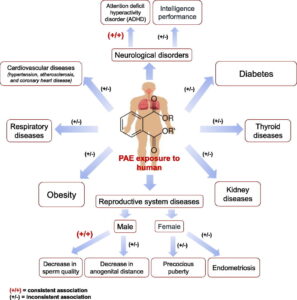For many of us, a cup of coffee is more than just a morning pick-me-up – it’s a ritual, a peaceful moment of initiation before the chaos of the day unfolds. But what if the very device you rely on to jumpstart your day could be doing the opposite of what you intend? Recent research suggests that the toxins lurking in some common coffee makers may be quietly sabotaging your health, particularly in areas that define your vitality as a man.
The problem isn’t necessarily in the coffee itself, though that can be problematic as well; today we’re talking about the hidden dangers of the machines we use to brew it. Coffee makers – specifically those with plastic components – can release harmful chemicals like BPA and phthalates when heated, leaching them into every single cup you brew. These toxins are known to disrupt hormones, drain energy, and, perhaps most concerningly, threaten your fertility and testosterone levels.
Before you take another sip, consider this: the daily habit you cherish might be quietly undermining your strength, stamina, mental sharpness, and even your chances of reproducing. In this blog, we’ll look into how toxins in coffee makers can affect your manhood, impacting everything from your reproductive health to your overall vitality. Whether you’re looking to protect your testosterone levels, maintain your energy, or just get some mental clarity, it’s time to rethink how you brew.
Toxins Hidden in Plain Sight
You might think of your coffee maker as just a simple kitchen appliance, but it may actually be a regular source of exposure to harmful chemicals. Most coffee makers, whether they’re the traditional drip models, convenient single-serve machines, or even some of the high-end espresso brewers, have components made from plastic or metal. These materials are often found in parts like water reservoirs, filter baskets, and internal tubing — areas that come into direct contact with hot water.
When these materials are exposed to high temperatures, they can leach harmful chemicals into your coffee. Two of the most concerning culprits are BPA (bisphenol A) and phthalates, both of which are commonly found in plastic components. BPA and phthalates are known endocrine disruptors, chemicals that can interfere with the body’s hormonal system. On top of that, certain coffee makers may also introduce heavy metals, such as lead or aluminum, into your brew, posing additional risks.
and phthalates are known endocrine disruptors, chemicals that can interfere with the body’s hormonal system. On top of that, certain coffee makers may also introduce heavy metals, such as lead or aluminum, into your brew, posing additional risks.
It’s easy to overlook these risks when you’re just trying to make your morning cup, but the reality is that these toxins could be quietly impacting your health in profound ways. As we explore further, you’ll see how these invisible threats might be affecting your fertility, testosterone levels, energy, and even your mental clarity. Understanding where these toxins come from and how they work is essential if you want to defend your vitality.
How BPA and Phthalates Impact Your Health
As mentioned above, the two main villains hiding in your coffee maker are chemicals that you’ve likely heard of before: BPA (bisphenol A) and phthalates. These substances are found in many everyday plastics; when heated, they can leach into your coffee. But why are BPA and phthalates such a concern for men’s health specifically?
BPA and phthalates are classified as endocrine disruptors, meaning they have the ability to mimic or interfere with the body’s natural hormones. BPA, in particular, can imitate estrogen – a hormone that, while necessary in small amounts for men, can wreak havoc on your body when levels become imbalanced. The result? Lower testosterone levels, which can lead to a cascade of effects including reduced muscle mass, decreased libido, and even mood disturbances.
Phthalates, commonly used to make plastics more flexible, are another threat to your hormonal balance. These chemicals have been shown to disrupt the production of testosterone, the hormone responsible for many characteristics traditionally associated with masculinity – like muscle growth, energy levels, and sexual function. Lower testosterone levels can also lead to increased body fat, decreased energy, and even fertility issues, creating a perfect storm for diminished vitality.

Daily exposure to these chemicals, even in small doses, can have a cumulative effect. With each cup of coffee brewed in a machine containing BPA or phthalates, you could be unknowingly reducing your testosterone levels and compromising your overall health.
Fertility Under Fire
Studies have shown that BPA can reduce sperm count and motility – the ability of sperm to swim effectively toward an egg. Exposure to BPA has also been linked to DNA damage in sperm, which can affect fertility and the health of future offspring.

Phthalates add another layer of risk. These chemicals have been found to interfere with hormone levels that are critical for maintaining a healthy reproductive system. Research indicates that men with higher levels of phthalates in their systems tend to have lower sperm quality, decreased sperm concentration, and impaired reproductive function.
While fertility might not necessarily be a daily concern for every man, it’s certainly a crucial aspect of and proxy for your overall health that should not be overlooked. The connection between these common chemicals and reproductive harm points us to the importance of being mindful about the products you use daily – including your coffee maker. Protecting your reproductive health starts with recognizing the risks and making informed choices to minimize your exposure to these hidden threats.
Drained Energy
Feeling sluggish even after your morning cup of coffee? BPA and phthalates found in so many of our coffee makers can disrupt your body’s natural hormone balance in a way that not only messes with our chances of reproducing but can also increase fatigue and damage our ability to perform at our best.
As mentioned in the previous sections, BPA and phthalates are known to interfere with the endocrine system – this system plays a vital role in regulating energy metabolism. When these chemicals mimic estrogen or block testosterone, they can throw your energy levels out of balance. Low testosterone, in particular, is often linked to chronic fatigue, reduced stamina, and difficulty maintaining muscle mass – all factors that can leave you feeling drained, no matter how much coffee you drink.

Additionally, the presence of heavy metals, such as lead or aluminum, in some coffee makers can also contribute to fatigue. Heavy metals tend to accumulate in the body, disrupting cellular function and impairing the nervous system. Over time, this can lead to decreased energy levels, brain fog, and also push symptoms of anxiety or depression, further compounding the effects of a compromised hormonal balance.
depression, further compounding the effects of a compromised hormonal balance.
If you find yourself constantly battling low energy, as so many guys today do, it might be worth considering whether your coffee maker is part of the problem. Reducing exposure to these harmful chemicals by switching to safer coffee-making methods could help restore your energy levels, allowing you to feel more alert, active, and ready to take on the day.
Safer Coffee Maker Alternatives
If you’re serious about protecting your health and vitality, you should consider safer alternatives for brewing your coffee. Luckily, there are plenty of options available that minimize or eliminate exposure to the harmful chemicals lurking in many conventional coffee makers. Choosing the right equipment can help you maintain your testosterone levels, support your fertility, and keep your energy and mental clarity intact.
Opt for Non-Plastic Coffee Makers
Consider switching to coffee makers made from materials like stainless steel, glass, or ceramic. French presses and stainless steel percolators are excellent choices – they tend to not have plastic components that can leach BPA or phthalates. Similarly, glass pour-over brewers provide a clean, toxin-free coffee experience, allowing you to enjoy your brew without the worry of chemical exposure.
Choose High-Quality Brands and Models
Look for coffee makers that specifically advertise themselves as BPA-free or free from harmful chemicals. Brands such as Chemex, AeroPress, and Bialetti offer coffee makers designed with health in mind, avoiding plastic parts and minimizing

exposure to metals like lead or aluminum. Some companies are now making drip coffee makers with glass or stainless steel components, providing a safer alternative for those who prefer the convenience of an automatic machine.
Consider Switching to Old-Fashioned Manual Brewing
Manual brewing methods, like using a French press or pour-over, not only allow you to control the quality of your coffee but also eliminate many of the risks associated with conventional coffee makers. These methods also often result in a richer, fuller flavor when done correctly and naturally reduce the chances of mold buildup and heavy metal exposure.
Switching to safer alternatives is a small change that can have a significant impact on your health. By choosing the right coffee maker, you can protect your testosterone levels, fertility, and overall vitality – without sacrificing your love for a good cup of coffee. Your morning ritual can remain just as satisfying, but a lot healthier for you in the long run.
Final Thoughts
Your daily cup of coffee should energize you, not compromise your health. Yet, the hidden dangers in many common coffee makers – like BPA, phthalates, and heavy metals – could be silently undermining your manhood. These toxins can disrupt your hormones, lower testosterone levels, drain your energy, and impact your fertility and mental clarity.
The good news is that by making a few simple changes, you can continue to enjoy your coffee while protecting your health. Switching to safer, non-plastic coffee makers, choosing manual brewing methods, and being mindful of the materials in your coffee equipment are all effective ways to minimize your exposure to these harmful chemicals.

Don’t be complacent and let your coffee maker sabotage your strength, vitality, and reproductive health. Make informed choices about how you brew your coffee, and take proactive steps to defend your manhood. Small changes in your daily habits can lead to seriously big improvements in your health and well-being over time.
So, before you pour your next cup, take a moment to ensure that your coffee is working for you – not against you.








